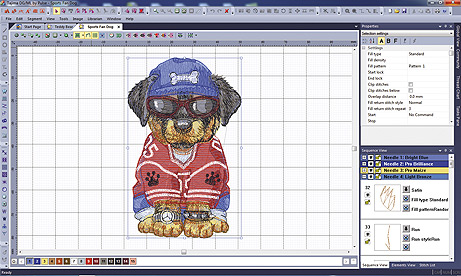
No technical support No software updates No security updates Your PC will continue to start and run, but Microsoft will no longer provide the following support for your business. If you continue to use Windows 7 after support has ended, your PC will still work, but it may become more vulnerable to security risks and viruses. What does end of support for Windows 7 mean? Now is the time to upgrade to Windows 10.

Mouse (three-button is preferred for digitizing).Minimum 2 GB hard disk drive space available.8 GB RAM - better choice 16GB or above- other program memory requirements should be taken in to consideration for appropriate RAM memory.Monitor with 1024x768 (4:3) video resolution with 16-bit color display (or higher).Video Card: A video card memory minimum size of 2GB and best of 4GB Ram video card size.64-bit 3.0 GHz Quad Core Genuine Intel Processor.Please contact your distributor for more information on system requirements. Increasing RAM memory and/or processor speed will improve system performance. RECOMMENDED COMPUTER SPECIFICATIONSīelow is a list of the recommended computer specifications if you plan to purchase a computer for Tajima DG16 by Pulse. 32-bit operating systems and older operating systems such as Windows XP and Windows Vista are not supported. Tajima DG16 by Pulse is a 64-bit application and requires 64 bit Windows 10, 8.1, 8 or Windows 7.

Cross Stitches are perfect for the home-sewn look.MINIMUM Recommended Computer Specifications Apply fills to larg er areas – you have a choice of standard, carved, or programmed patterns that give your design lots of texture.

Runs and Steils are pefect for outlines and borders. Embroidery i2 includes a variety of stitch types: Satin stitches that are always the preferred stitch for small and medium sized areas – they fill the shape from end to end without needle penetrations in the middle, and make the design look bright and appealing.

Use the 3D view to see how the design will look when it is sewn. Simply click on another stitch type and the stiches will be updated. Don’t think you applied the right stitch to that segment? It’s easy to chang e your mind, as many times as you would like. The stitches will fill the shape and show up on screen. All you need to do is click on the segment to select it, and click on the stitch type that you’d like. Bring in any existing vector file into CorelDRAW or Adobe, and apply stitches to the segments using Embroidery i2.


 0 kommentar(er)
0 kommentar(er)
